ASF 027: Mikael Wedham interview
Introduction
Mikael Wedham is the first Microsoft Certified Master on SQL Server 2008 in Sweden. He has worked as a developer and database administrator since 1993 and in ’97, Mikael became a Microsoft Certified Trainer. He has gone through a pedagogical education with DSAT. Mikael was one of the first in Sweden giving lectures in Microsoft OLAP Services for SQL 7.0 and is also hired as Business Intelligence expert. Mikael is the founder of SQL Saturday in Sweden, where he also appears as an appreciated speaker.
This talk has taken place after SQL Saturday 2019 in Gothenburg, Sweden on 15 September 2019 (Sunday).
Interviewer: Kamil Nowinski (T).
Audio version
Transcript
Kamil Nowinski: At the beginning, could you introduce yourself and where you live?
Mikael Wedham: My name is Mikael Wedham, I live in Växjö, Sweden. It’s a city with 70,000 people, in the centre south of Sweden.
KN: Fantastic, so currently we are sitting in a coffee bar and Gothenburg, right?
MW: Yes.
KN: Could you tell me and us what happened yesterday?
MW: Oh, we had the 5th SQLSaturday in Gothenburg. In Gothenburg, since that’s my hometown, I grew up here. And I’ve been arranging it for five years now.
KN: So how many tracks were there yesterday and how much effort does it cost you to prepare something like SQLSaturday?
MW: Yesterday we had six slots during the day or five separate tracks but we had them in three rooms so we had different subjects in different rooms. And I’ve been preparing basically from November, a couple of hours every week and some weeks maybe 40 hours.
KN: Started in November?
MW: Yes.
KN: Oh, it’s almost like a year ago.
MW: Yeah. So next year’s SQLSaturday we’ve already started a month ago to prepare for that one. So it takes a lot of planning and a lot of preparations to do that.
KN: And also you speaking a lot during that kind of conferences, right?
MW: Yeah, I try to go to almost one SQLSaturday every month.
KN: Fantastic. Could you share your experiences in that area? How do you prepare for speeches and how does it work for you?
MW: Oh, that’s kind of a secret, because I don’t prepare that much. I’m a SQL Master [Microsoft Certified Master], so I think I have pretty good knowledge on the things, and then when I do my presentations, I usually find the area I want to do a presentation about, and then I may be practising and put some slides together, do some demos, and then I go and do the presentation. Because, as everybody who presents knows, the presentation is never going as planned. So I don’t plan that much. I just do what works in the presentation and sometimes things work and sometimes they don’t.
KN: OK, so you mean that sometimes you improvise?
MW: Yes, that can happen. We discussed that yesterday that I never touch my presentation or demos the week before I do the presentation because I don’t want to break something. But sometimes things break themselves, so…
KN: Especially these days when everything changes almost every day in Azure.
MW: Yeah, when you discover new APIs and your APIs are gone, that’s the time for improvisation.
KN: Yeah, also it’s a little tougher to present something with Azure services because you need access to the Internet, right? And it’s not always the case.
MW: That was a challenge yesterday because we’re at the public school and they have regulations about who gets access to the Internet. And we don’t get tickets or passwords for all the speakers. So I had to tether my phone and I had one of my colleagues to tether phones, to give speakers Internet access to do that stuff.
KN: But nothing bad happened yesterday, right?
MW: I heard no one reporting no internet connection. Everything was perfect, apart from that we had a power failure of the entire venue, just five minutes before we started.
KN: OK, I didn’t notice that!
MW: But that’s like a mishap. It was covered pretty well.
KN: OK, you mentioned SQL Master. Could you explain that for people who don’t know what that is?
MW: When you do a normal certification, you get a certification obviously and then you can do a lot of certifications. Then you will have higher titles, like Solution Developer or Systems Engineer, Database Developer, and that’s usually two, three, four certifications. But then, a couple of years ago, Microsoft also had intensive deep training with a certification that was totally crazy. And since I’m also totally crazy, I thought it was a good idea to do that certification, and I passed. So I was one of the lucky few that made that certification before it got cancelled.
KN: So, to summarize, it’s MCM, right?
MW: MCM, yes.
KN: So how did you prepare for that? I’m guessing that it was very hard to pass that exam.
MW: Yes. First thing, I prepared for almost a year all waking hours, I wrote my own course material, I prepared by reading blogs, talking to people, doing practice things. So I was extremely well prepared. And then, when I came to the certification, I realized that I got tasks that usually I do in one week, and they said “you have eight hours” and then, when I had done this certification, I was so empty and tired, I almost cried. And I failed. And then I prepared even more, but…
KN: So you failed the first time?
MW: Yes, I failed the first time and then I prepared even more. But the most preparation was actually probably I knew that I was never going to have time to do everything. So I mentally prepared to fail and that made me more relaxed, as in “OK, I’m gonna do as much as I can, and the things I don’t have time to do, I can’t do them”. So the second time I did it, the same feeling, I almost cried, and I got the message a couple of weeks later that I passed.
KN: Fantastic. But the first time it had to be very hard because you thought you were very well prepared, unfortunately, the result was…
MW: Nothing can prepare you for that experience. It was so tough, so broad, so wide.
KN: So how do you prepare better for the future, if you were to give some advice to other people? I know that MCM doesn’t exist nowadays but if people are preparing for other exams.
MW: You need to work with things more, and know more how things work, use books online, and experiment. See that the things work like they should find things that aren’t like they should.
KN: So read, practice, etc.?
MW: Yeah, know best practices, know better practices and work with all parts of the product.
KN: OK, let’s talk about what you do for a living, on a daily basis.
MW: Right now I’m around half time Managing Director of SolidQ in Sweden, and the other half is consulting for SolidQ Sweden. So I’m sharing my job, so I’m a full-time employee at SolidQ but doing consulting and managing director things in a mix.
KN: So this is a part of your job?
MW: Yes, my job is part-time consulting, part-time doing managing director things.
KN: How does it work for you? Or maybe I should ask differently first: when did you start with SolidQ?
MW: I started with SolidQ as a subcontractor and CTO in 2012, but I changed to being an employee this 1st of December last year.
KN: OK, so something quite new. Why did you decide to go in that direction?
MW: Because they gave me the famous offer you can’t refuse. I got an offer to be Managing Director and I told them: “but I don’t like managing budgets and invoicing and financial things because that’s boring” and the board said that we knew you were gonna say that, so I got the opportunity to have Torben as my help to do that stuff I don’t like. So I actually do the CTO things, managing work, and do the things I’m good at, and still get to do consulting. So it was a no-brainer. I got to work with SolidQ as I was before.
KN: So they basically gave you a very good offer. So do you think that the situation that you are doing something more, something extra apart from your normal job or getting out of your comfort zone could help give you that kind of offer?
MW: Yes, because before I had a lot of customers and I had only myself to work for the customers, so I started to give a job to my friends at SolidQ and make them work for me as a subcontractor. And it was so much work to keep track of “OK, whose customer is this, whose customer is that”. So we’re actually saving time by me keeping the customers but letting my friends and me work at the same place. So we’re more as one company.
KN: That sounds good. What do you think about the MVP, MVP title and award?
MW: Sometimes I’m thinking about MVP but I haven’t… I have been nominated but I haven’t been approved. And I’m thinking that if I am going to be an MVP, I want to be an MVP because I do what I love, and I am never gonna change what I do to get the MVP title. So I’m not gonna start blogging 16 hours a week just because that’s what it takes. So if I become an MVP, that’s gonna be wonderful. I would love it probably, but if I don’t become an MVP, that’s because I don’t love the things that it takes to be an MVP.
KN: That the general goal, do what you love doing and one day it might happen.
MW: You never know.
KN: Exactly. What about your work-life balance? I know that it’s quite hard to do some extra things like organizing events, like going and doing some extra work, like giving a speech during the conference. Because it’s our voluntary time. So how can you manage that work-life balance?
MW: I have a very understanding wife and we decided already in 2004 that my way of working is that I’m away from home quite a lot but then when I’m at home, I’m fully at home. So I work from home during un-customer hours or un-customer weeks, because in Sweden we have this public holiday in the summer, it’s maybe for me usually six to eight weeks where there are not many customer requests. That’s when I can be at home, do administration stuff and do things that everybody else does during the year. So I have a big pile of papers and stuff that I must manage. But I am still at home. So we have a good compromise and a good balance there. And then usually I go diving with my kids a couple of times a year. And I try to sing in a choir as much as I can.
KN: You have children, right?
MW: Yes, three.
KN: What ages?
MW: 24, 18 and 16.
KN: So now they are more mature and they can manage their lives more.
MW: Yeah, so my oldest daughter lives in Gothenburg and she’s assisting in the SQLSaturday, so she is one of the volunteers.
KN: Oh, so she was sitting with us yesterday during lunch, right?
MW: Yes. And also my mother as one of the volunteers.
KN: That was my understanding that it’s your mother. So fantastic, almost the whole family, let’s say half of your family engaged in organising the SQL event. So for sure, we can say “SQL family”, right?
MW: Yes, yes it is.
KN: That’s fantastic. So what do you think is the hardest these days in technology or in the area that you are working with?
MW: It’s interesting, the hardest is that when I was 25 I was an expert, so I knew everything and I went to customers maybe some time and telling the customers “you can only do this in one way and it is this way that I tell you”, and the customer said “OK, thank you for your information, we’ll ask three other consultants”, to make sure. And I was sometimes a bit annoyed that “oh, why aren’t you doing this, because this is right, I know it”. I still have that issue that when I know I am right, I might be a bit hard to being talked into that I’m not right. But now when I’m unsure, I go to the customer and the customer asked me “OK, what do you think about Power BI?” and I tell the customer “I have no clue, I have installed Power BI once and I think you can use it like this” and I hear the customer goes and says “well, Michael said we could do that this way because he has been doing that” and I’m like “no, I’m unsure, I have no clue”, but now when I’m mature, at least I look mature, then the customer trusts me more. So the hard thing is to know when to push, “OK, this is a thing I know for a fact” and to choose those things. Because a lot of the things in our field is connected, so I realized I need to know Azure, I need to know Storage, I need to know SAN, I need to know Virtual Machines, but I can only be the best on so many things. So what do I choose?
KN: Exactly, so that’s the reason why you are unsure of some solutions, right? You can feel some solution because of the knowledge, right?
MW: Yes, I know how it should be, but I’m not sure anymore that it’s a fact that it is so.
KN: These days it’s very hard to have very deep knowledge about everything. In my opinion, it’s almost impossible, because there’s too much. Even if you look at let’s say some data flow in the modern technology, in the modern data architecture there are too many technologies that can be engaged from the beginning to the end, from end to end solutions.
MW: And before you had two or three.
KN: Yes, SQL Server and maybe SSIS and that’s it, right?
MW: Yeah, and you know that either you use C# applications or SSIS and which is best in this case. Now we have 50 different things and maybe there’s some that I don’t even know that is better than the things I know.
KN: And everything is changing very quickly.
MW: Like we said in Azure, the APIs and the demos break all the time.
KN: Exactly. So if you look at the market, we can see that there are many positions that are available on the market. The market needs more and more people working in IT. So basically the market needs more people, which means young people as well. So what kind of hints would you give to young people if they want to start working in the IT market? Doesn’t matter which technology. It might be Microsoft, might be something else. What kind of advice would you give them, how to start doing this easier?
MW: I would say there is no way to start easy. If you want to be good, if you want to be good in the market, you must know how things work and why they work. It isn’t enough to be very good and very quick with your mouse and the user interface. It’s when you know why you’re doing this and why it works in a certain way, and how the result is coming. That’s when you are good at your job. So I tell everybody: when you want to be good, you need to go down, you need to drill down into the technology and see why it works and how it works.
KN: So you mean practice yourself doing this?
MW: Yeah, see what happens, experiment, do something that you know won’t work and then try to understand why this didn’t work.
KN: What can help more, in your opinion, some conferences or maybe some online documentation or maybe some webcasts? What helps better to understand the technology?
MW: A combination. I would say a conference is very good, like SQLSaturday that is free, to see “OK, I’m interested in this topic, I think this technology looks cool”. But then, going further with online documentation, doing labs, doing experiments with big data sets. That’s what makes you better than everybody else. But you must choose first from the smorgasbord of things you can do. And there a conference is the best place because you have sessions about everything.
KN: And you have access to the experts from their area. As you mentioned, those events are free and you can ask any questions that you need.
MW: Yeah, and most speakers stay for the entire day and just walk around the people and ask questions and answer questions.
KN: What is your recipe to be up-to-date with technology these days?
MW: I have my biggest interest as my job. So sometimes when we sit together, me and my wife on a Friday night, she’s wondering: “do you want to look at TV or are you gonna play with your SQL Server still?” and the answer is most often “I want to play with my SQL Server”. So it needs time. And if you’re interested in it, if you find a passion for things, then you can spend time with it.
KN: Was it you yesterday when we were waiting for the ferry? Did someone ask about movies?
MW: Yeah.
KN: Could you tell us about it?
MW: Yes, when I work for a week and I’m away, I usually relax playing with the SQL Server or maybe looking at the movie together with my wife. And I’ve told her that movies Friday night she can pick because I don’t remember, I don’t know what we see, because I’m relaxing my brain, emptying the cache. So she did an experiment once that on Saturday she said “can we watch this movie? I’ve heard it’s good”, and I say “yes, sure”. And then about an hour into the movie, I told her “I think I’ve seen this”, and then she smacked me on the head and said, “yes, we saw it yesterday”. So, yeah.
KN: After one hour, right?
MW: Yeah, after one hour I realized I saw it less than 24 hours ago. So yeah, movies are not the great thing for information input to me. It’s a time-spending thing.
KN: I had the same. I can watch a movie or read some books and after half a year I don’t remember what it was about or I don’t remember the actors. Obviously with some exceptions but generally it’s like this. What kind of technology are you working with right now? What is closest to you?
MW: I try to specialize since SQL Server is so extremely wide now. I try to focus on Data Platform, only SQL Server engine, and Data In, Data Out. So that means I’m doing loading of data warehouses, SSIS, I’m doing performance tuning, also backup restores, often performance issues.
KN: So mainly on-premises?
MW: Yes, on-prem and also platform evaluation, you can say, to see if the customer has what it takes to go to SQL 17 or 19, or go to Azure. So I do some kind of inventory to see what they are using and if they can upgrade.
KN: The new version of SQL Server, 2019, might be very interesting for your customers, or generally for all of us, because it brings some technology that we have never seen with a SQL engine before, yeah?
MW: Both that, for the GDPR and the city governments companies, but also the performance. We have a lot of customers with a legacy code that has been running since Cursors was a good thing and temp tables were even better. And they’re using a modern approach that is table variables, and the performance increase in 2019 of those system objects and everything would be probably a very good thing for our customers.
KN: Yeah, exactly. What do you think about Java, Python, R in the SQL Server engine? Maybe not directly in the engine, but…
MW: I think it’s cool. It’s good that we can use the data without moving it so far. It’s still in the same machine and you can use their business standard code languages. However, having said that, that’s one of the areas that I decided “that’s not my focus”. So I’m leaving that for other consultants. And I’m kind of happy with that. I have colleagues in SolidQ that are experts in both Python and R services, so we have a good combination. I realize that one man cannot learn everything. Even if it’s hard to accept.
KN: Yes, unfortunately, it is. What do you think would be the future of ETL, ELT processing? Or what would be the future of SSIS for example in that kind of context?
MW: The future of SSIS would be that it has components that have wizards or templates with AI-ish things that do a ton of work under the hood. So it sets up machine learning, algorithms, testing things out. And yes, I know there are in Azure already. The machine learning pipeline, the automatic learning classification things, where you learn your data, and I think they will grow and develop in Azure and come down to SSIS. And the features of SSIS, the tight integration, would go up to Azure. So I think more Azure or on-prem would be a moot point. That depends on if you have your machines on-prem or if somebody else, like Azure, has your machines. But you would have the same functionality, same flexibility everywhere. At least that’s my dream. That would be perfect.
KN: What kind of things the customers should understand if they want or consider moving to Azure for example or to the cloud in general?
MW: That they shouldn’t move their easiest data load to Azure just because they can. They should do a thorough analysis to see which data load is the best to have in Azure because Azure is not good at everything. There are things that you need to have on-prem, still. So they should do better background work on what to move because moving things back might cost you some money and some time.
KN: Maybe not all the existing solutions are good enough to move to Azure.
MW: No, when you have transaction-intensive applications that the client is running on-prem, your application will probably die from moving the server storage up to Azure. So you have to redesign the architecture and have the client in Azure, then it could be done. But are you prepared to do that, are you willing or is it allowed even to do that?
KN: So you mean that it would definitely be easier to create a proper new solution in the cloud?
MW: Yes, in some cases it’s better to rewrite an entire system for Azure then using the on-prem version that has a lot of legacy and timing issues.
KN: But if we are not thinking about existing systems, if we are thinking about new projects, would you recommend to the customer that they use the cloud or maybe still sometimes on-prem solutions, for new projects?
MW: I would recommend the thing that is best. And sometimes it’s still on-prem that is best for their solutions, and sometimes it’s Azure. And I can’t say a percentage of how many per cent is best in Azure, but it’s very depending on the project and the customer. Because different customers have different maturity in cloud things as well.
KN: Cool. Thanks, Mikael. At the end of our conversation, could you tell us where we can find you on the Internet or how we can contact you?
MW: I have a Twitter account that I’m using maybe two days every year, and that is those two days before SQLSaturday because speakers communicate with that. I haven’t really found how to use it yet. And normally email is very good.
KN: Thank you very much for this conversation.
MW: Thank you.
Useful links
Mikael’s profiles: Twitter | LinkedIn
Mikael’s blog: Blog
Related events: SQL Saturday Gothenburg
About author
You might also like
ASF 001: Brent Ozar interview
Introduction Brent Ozar talks about himself, his passion, hobbies and carreer. Brent Ozar is one of the most known person in the SQL Server world. He is a Microsoft Certified
ASF 006: Bob Ward interview
Introduction Bob Ward is a Principal Architect for the Microsoft Data Group (Tiger Team) which owns the development and servicing for all SQL Server versions. Bob has worked for Microsoft
ASF 017: Alex Whittles interview
Introduction Alex Whittles is the owner and principle consultant at Purple Frog, a SQL Server Business Intelligence consultancy in the UK with multinational clients in a variety of sectors. He

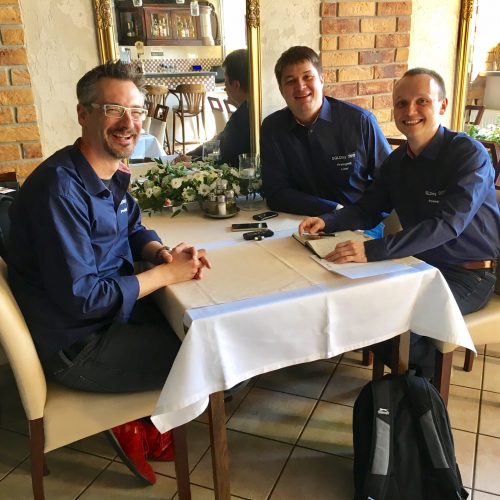
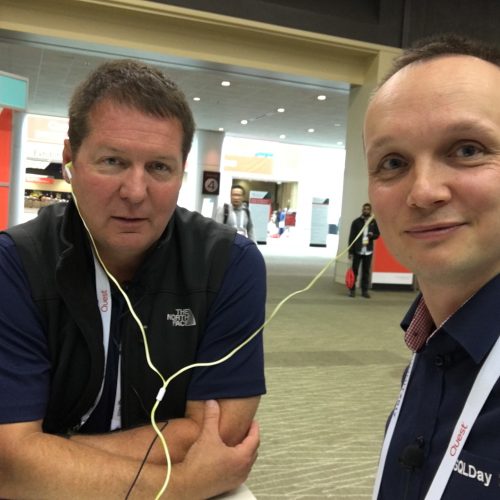
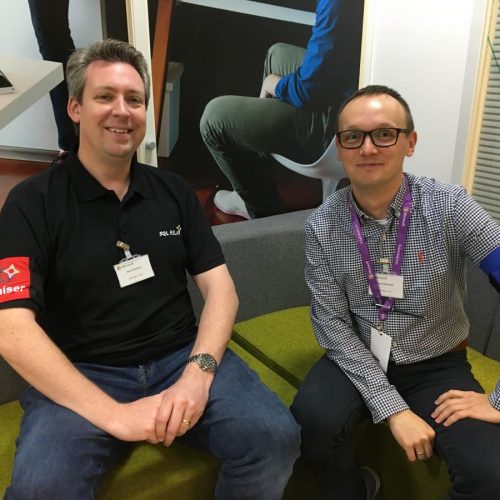
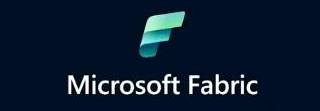

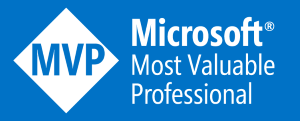

0 Comments
No Comments Yet!
You can be first to comment this post!